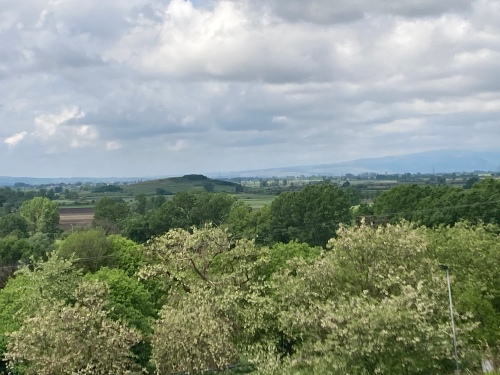If there is not yet an annual award of Archaeological Integrity in Media Relations – anyone know of one? – then it needs to be instituted immediately, so that it can be awarded to Jay Carver, the lead archaeologist of the Crossrail project, for heroically resisting every temptation to over-sell the latest finds. The news report I read (and I stuck to the Grauniad; heaven only knows what the other papers came up with) is quite hilarious. ROMAN SKULLS FOUND DURING CROSSRAIL DIG IN LONDON MAY BE BOUDICCA VICTIMS, screams the headline. “Blackened Roman skulls, possibly victims of Boudicca’s revolution that scorched the foundations of the Roman empire in Britain, have come tumbling out of a Crossrail tunnel in the heart of London…” The next reference is a little more cautious, noting that earlier finds “were often interpreted” as the skulls of Boudicca’s victims – but then hastily rushes on with the dramatic colour: “decapitated and slung ignominiously into the river, when in 61AD her Iceni tribe swept south from their East Anglian home, and torched Roman settlements on their way to attack Londinium itself.” But then we get to an actual quote from the archaeologist:
However, Jay Carver, the lead archaeologist on the project, who called the find “an unexpected and fascinating discovery that reveals another piece in the jigsaw of London’s history”, fears the more prosaic explanation is that the Walbrook washed away the edges of a Roman cemetery further upstream, possibly soon after they were buried: skulls would have tumbled and rolled further in the water than long bones.
Maybe I’m imagining it, but I can hear the grinding of teeth and rolling of eyes on the part of the journalist in the face of such intransigence. Come on, even if these aren’t the remains of someone our readers will have heard of, at least let them be the victims of someone famous, and linked to a famous historical event. What’s with all the professional caution? You can’t prove that they weren’t brutally decapitated by the rampaging Iceni, probably while enjoying an orgy of honey-coated dormouse. What have you got to lose? Don’t you want to get your own telly programme?
As I’ve said on here before, I do appreciate the pressures that many archaeologists feel to make the most they can of their finds – and my reading of this story suggests, to a greater degree than I’d realised, that a lot of the pressure may come from the media, wanting a simple and sexy story, rather than from financial imperatives or the Impact agenda. Jay Carver is clearly free of at least some of these pressures, very likely because of the very different context of his role (see also the interesting interview with Museum of London Archaeology here) – but that isn’t going to stop me cheering for his quiet but stubborn stand against the dumbing down of archaeological discoveries.
Read Full Post »
